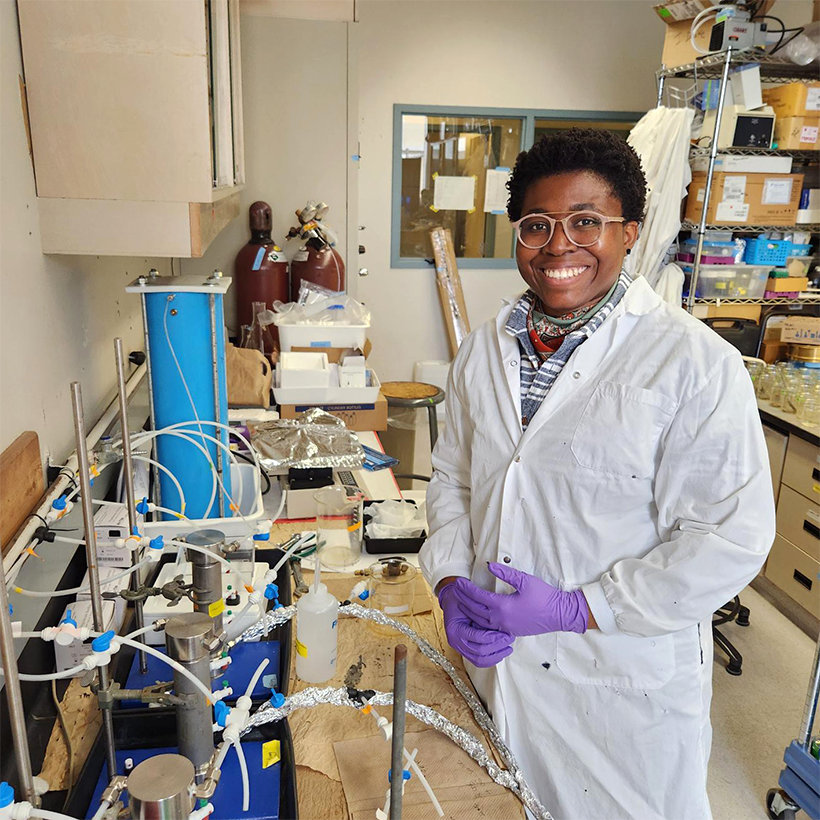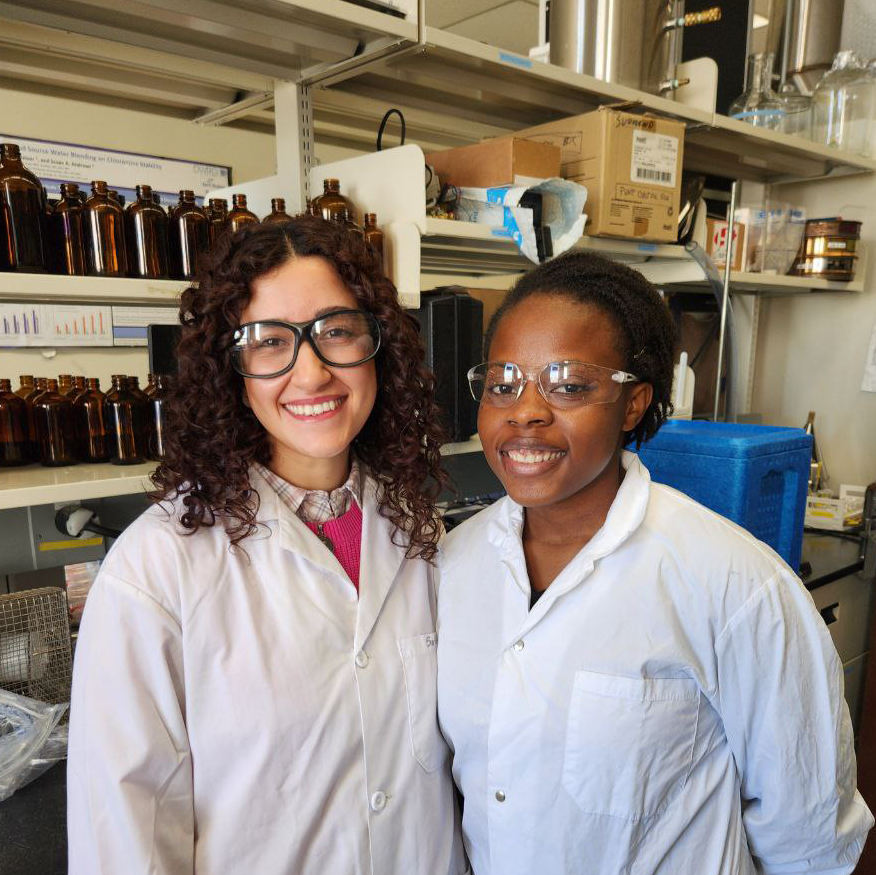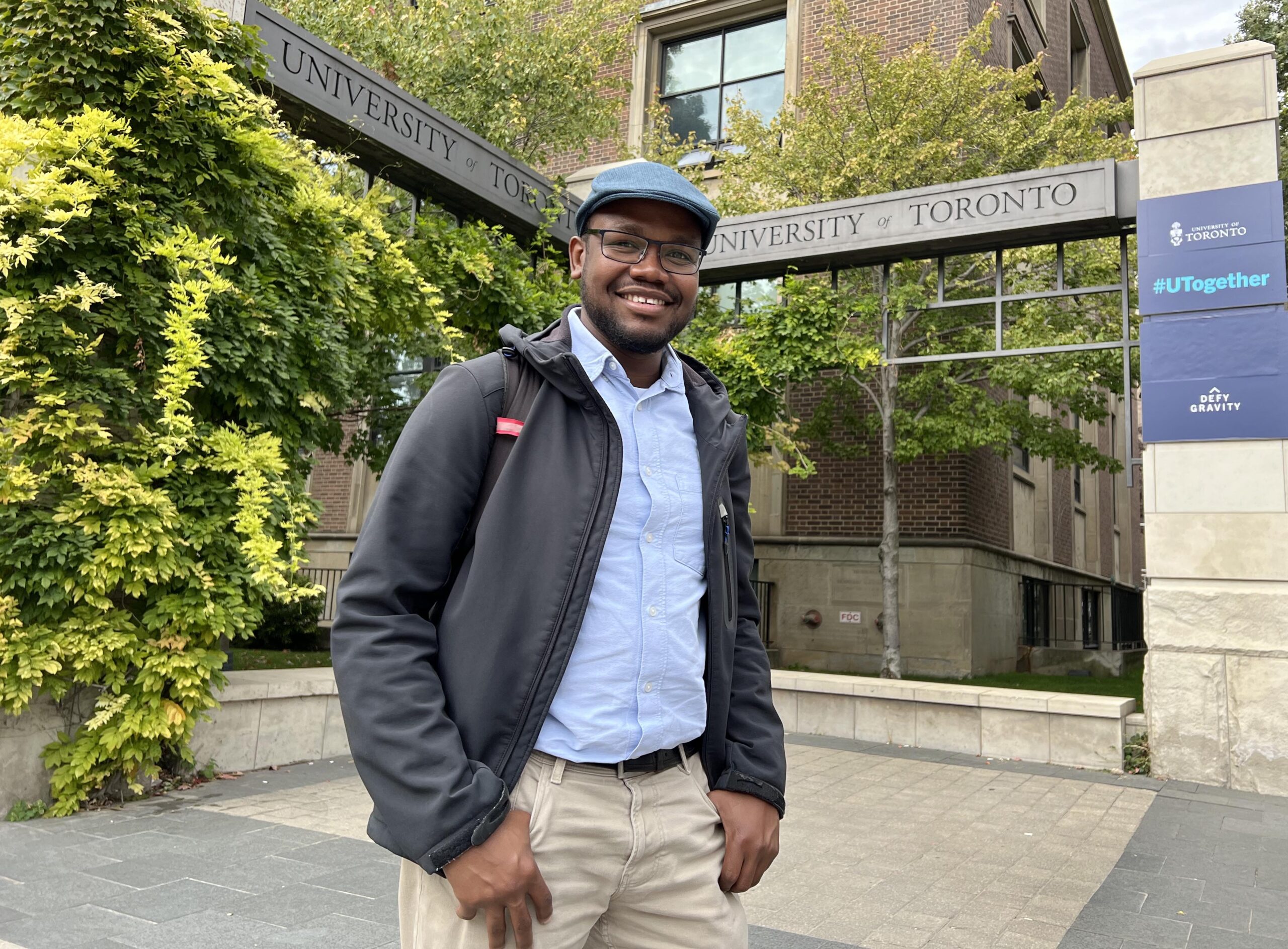To celebrate, we’re highlighting the incredible research our
CivMin faculty and students are leading to preserve and value water.
Ezinne Ndubueze is a PhD candidate currently working under the supervision of Professor Brent Sleep on a project looking into the removal of forever chemicals (poly and perfluoroalkyl substances – PFAS) from groundwater using colloidal activated carbon (CAC).
The project seeks to understand how CAC removes PFAS in groundwater when placed in the subsurface. In addition, it is looking into understanding how CAC behaves in the subsurface before and after the adsorption of PFAS.


PhD Candidate Mennatallah Alnahas' research is focused on monitoring harmful alga, and then using machine learning to predict upcoming blooms, so the utilities can be alarmed to put emergency plans in action to prevent water intoxication.
Maeva Che's doctorate research focuses on removing taste and odour compounds from drinking water, primarily using granular activated carbon (GAC) filtration and explores alternative mechanisms, particularly biodegradation.
